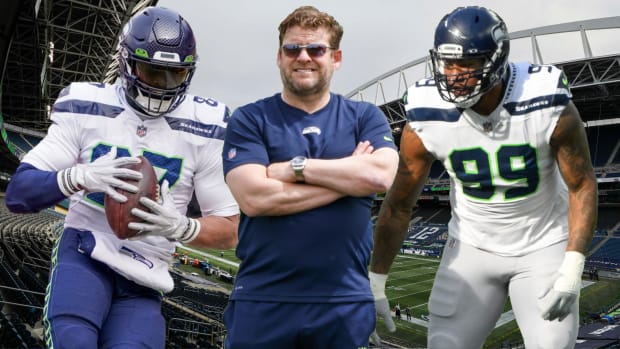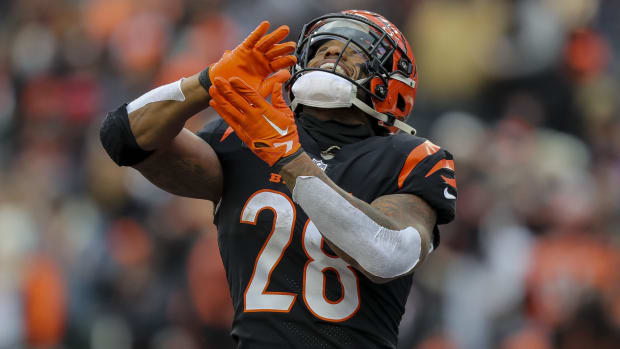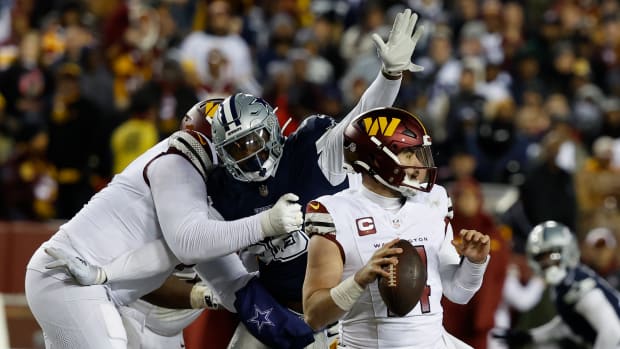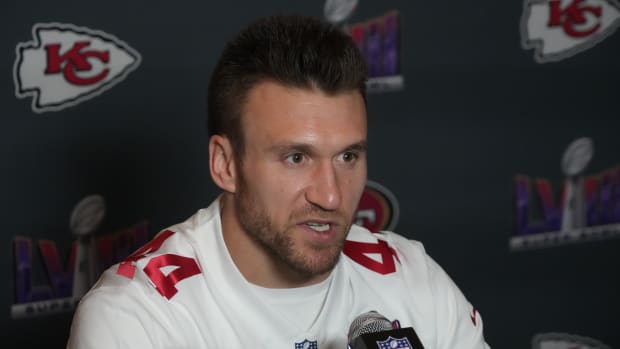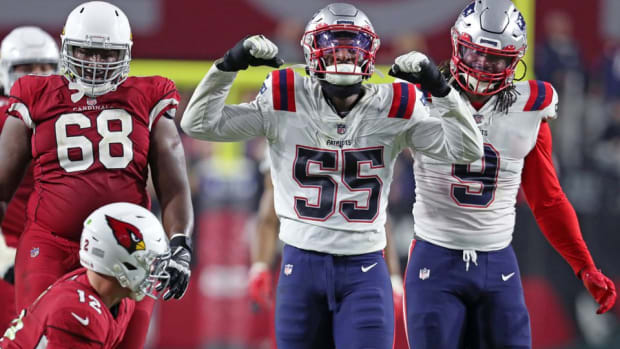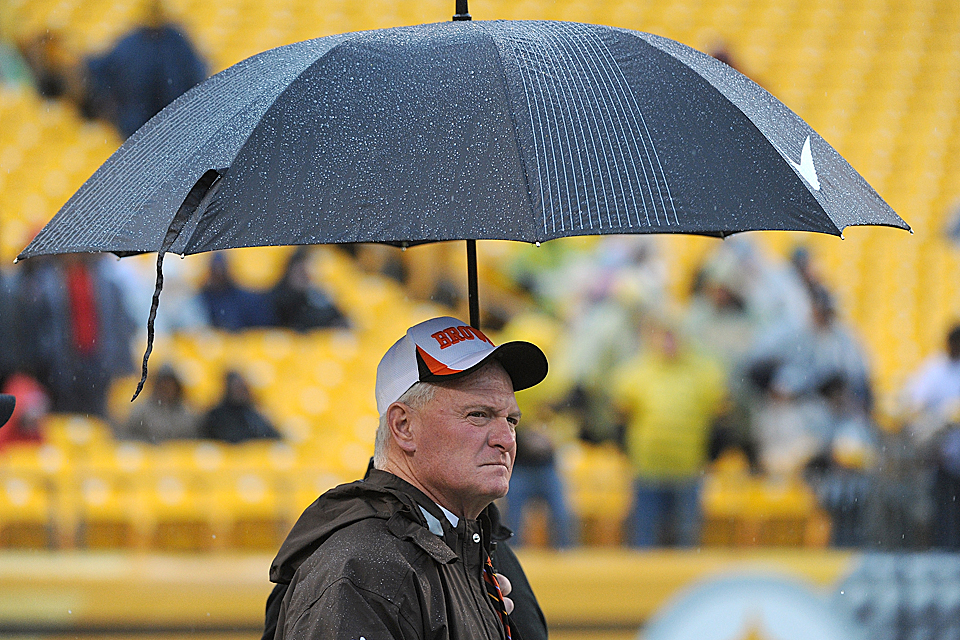
In the Clear... For Now
Pilot Flying J (“Pilot”), the truck stop company whose CEO is Browns’ owner Jimmy Haslam, is the nation’s largest provider of diesel fuel to over-the-road trucking companies. They sell six billion gallons of fuel annually to more than 5,000 corporate customers while earning more than $30 billion in annual revenues. Haslam’s substantial success and impressive wealth—not to mention the fact that his brother is governor of Tennessee—were certainly attractive to NFL ownership in approving him as Browns owner two years ago.
For the past year, however, Haslam’s primary business has been in the news for all the wrong reasons. It has been the focus of investigation by the FBI, IRS and U.S. Department of Justice. And although Haslam has largely been able to stay above the fray, he probably was not receiving the warm embraces from his NFL ownership brethren that he had before.
With Commissioner Goodell making player conduct such a hallmark of his tenure, the conduct of those on the other side of the labor equation—the owners—has come into question. Between Jim Irsay’s troubles with substance abuse, Daniel Snyder’s saying he will “never” change his team’s name and Haslam’s company under criminal investigation, these have not been the best times for NFL owner behavior.
As for Haslam, let’s examine the resolution—for now—between the government and Pilot, and whether Haslam should face any NFL sanctions.
Criminal Enforcement Agreement
After comprehensive criminal investigations by both the FBI and the IRS, a Criminal Enforcement Agreement (“the Agreement”) was reached between Pilot and the U.S. Attorney’s office. The lengthy agreement has the following key provisions:
- Pilot admits to blame for its deceptive practices. Unlike a global litigation settlement such as the NFL concussion case, in which the NFL did not admit liability, Pilot does admit to criminal misconduct.
- Pilot will pay (1) $92 million to the U.S. Government as a penalty, (2) $56 million in restitution to its customers for its fraud, and (3) $14 million in auditing costs at the government’s request. While this $162 million bill is not insignificant, it is a relatively small price to pay for the billionaire Haslam.
- Pilot will fully cooperate with ongoing FBI and IRS investigations. Employees involved in such wrongdoing have either been terminated or placed on administrative leave, and Pilot and has no protection for any individual in regard to future investigations. Thus, Pilot will continue to be under the watchful eye of both agencies.
Big swings
When Haslam was vetted to become the Browns’ owner (he had a small interest in the Steelers at the time, which he divested) he was quite clear about his intentions. When informed there were minority investors available to help supplement the $1 billion cost to purchase the franchise from Randy Lerner, I am told he replied, in so many words I’m good. (Truck stops are quite a business … who knew?)
Haslam appears to be in the mold of Jerry Jones, full of gusto and bravado and interested in taking big swings, even if he misses. He has turned over two coaching staffs while unsuccessfully pursuing big-game targets such as Chip Kelly and Jim Harbaugh. On the player front, no team has been more active in the first days of free agency over the past couple of years than his Browns.
Haslam’s itchy trigger finger has, in two short years, left a trail of terminated coaches and executives. The past, present and future tab for those dismissed—including Mike Holmgren, Rob Chudzinski, Joe Banner, Mike Lombardi, etc.—is approximately $30 million, more than many current front-office payrolls.
It has been an eventful offseason in Cleveland, fueled by the Browns’ drafting of lightning-rod quarterback Johnny Manziel and the return of the area’s prodigal son LeBron James. Fortunately for Haslam, his company’s problems with the government have managed to stay below the radar with Manziel and LeBron dominating the spotlight.
When Pilot’s issues with the government were (for the moment) resolved last week, the question arose as to what discipline Commissioner Goodell, with his emphasis on conduct, would attach. Thankfully for Haslam, NFL spokesman Greg Aiello has said there will be none. Although the Personal Conduct Policy is expansive, it appears to be the correct decision according the rules in place.
Conduct Policy Limits
The now-common refrain from some players that there is a double standard in regard to owners and players may have relevance in regard to Irsay, but in this case it is harder to make that claim.
There is certainly an argument that Haslam had to be aware of, if not overseeing, rampant deceptive practices at Pilot. However, the agreement revealed no knowledge of these fraudulent schemes by Haslam. Unlike a player arrest—or, in the case of Irsay, an owner arrest—there is no police report or similar evidence of misconduct to document Haslam’s behavior.
Similarly, were a player in an ownership or decision-making role of a company engaged in fraudulent behavior, it would be difficult for Commissioner Goodell to levy any discipline without direct involvement by the player. Many NFL players have ownership interests or supervisory roles in businesses and/or foundations. Were such businesses or foundations involved in fraud, deception or other criminal activity without direct knowledge or involvement of the player, it is hard to envision any discipline from Goodell.
Although Haslam is spared sanction from the NFL (for now), more eyes should be on him going forward, with one of the more focused pairs belonging to Goodell. As the U.S. government watches Pilot and Haslam closely, the NFL, in the interests of personal conduct on and off the field for all its members, should do the same.
And now for a new feature tagging along with every column of mine…
Brandt’s Rants
On Tony Dungy’s Michael Sam comments …
Tony Dungy's admission that he would not have drafted Michael Sam has not been well-received. (Ben Cohen/NBC/NBCU Photo Bank)
Beyond the social commentary over Tony Dungy’s remarks regarding Michael Sam, his words pulled back the curtain on how NFL coaches view many players as commodities well-served by conformity.
The NFL is not a democracy; the greater the talent, the more tolerance for “other stuff”: substance abuse, character concerns, selfish behavior and yes, disproportionate attention. Absent special talent, coaches prefer low-maintenance football guys who fall in line with the crowd and maintain a laser-like focus on the game.
It is naïve to think that, during the draft process, teams viewed Sam through the same lens as more anonymous players competing for the same draft position. Absent the leverage of a higher talent equation, Sam was likely passed over by NFL coaches and front offices in favor of players with similar skill sets yet less notice paid to them.
I have never thought that Sam would be a victim of homophobia in the NFL; I think we are past that. However, I continue to believe he was and potentially will be the victim of “distraction discrimination,” with his talent not enough to warrant the attention he brings.
Like all bottom-of-the-roster players, Michael Sam is an interchangeable commodity fighting for one of precious few roster spots. His situation is a microcosm of the cold business of football: so many players, yet so few jobs.
On the Jamaal Charles extension …
The Jamaal Charles extension, like so many NFL contracts, is not what it appears to be. When I heard that Charles, with two years remaining on his contract, was given $18 million in new money, it certainly raised my eyebrows. With other star players on the roster like Justin Houston and Alex Smith six months away from the end of their contracts, it seemed strange that the Chiefs would cave to those numbers for Charles, even with his superb production.
However, behind the glossy $18 million over four years exists the reality of $5 million guaranteed over two years added to the existing contract, with the bulk of it this year. After the two existing years, this is essentially a one-way contract extension: the Chiefs will decide if Charles is worth keeping, with no financial obligation if he is not.
In other words, the Chiefs smoothed over issues with Charles by upgrading this year’s pay by about $4 million and next year’s by less than $1 million. After that, as is the case with most NFL contracts, it’s we’ll see.


































